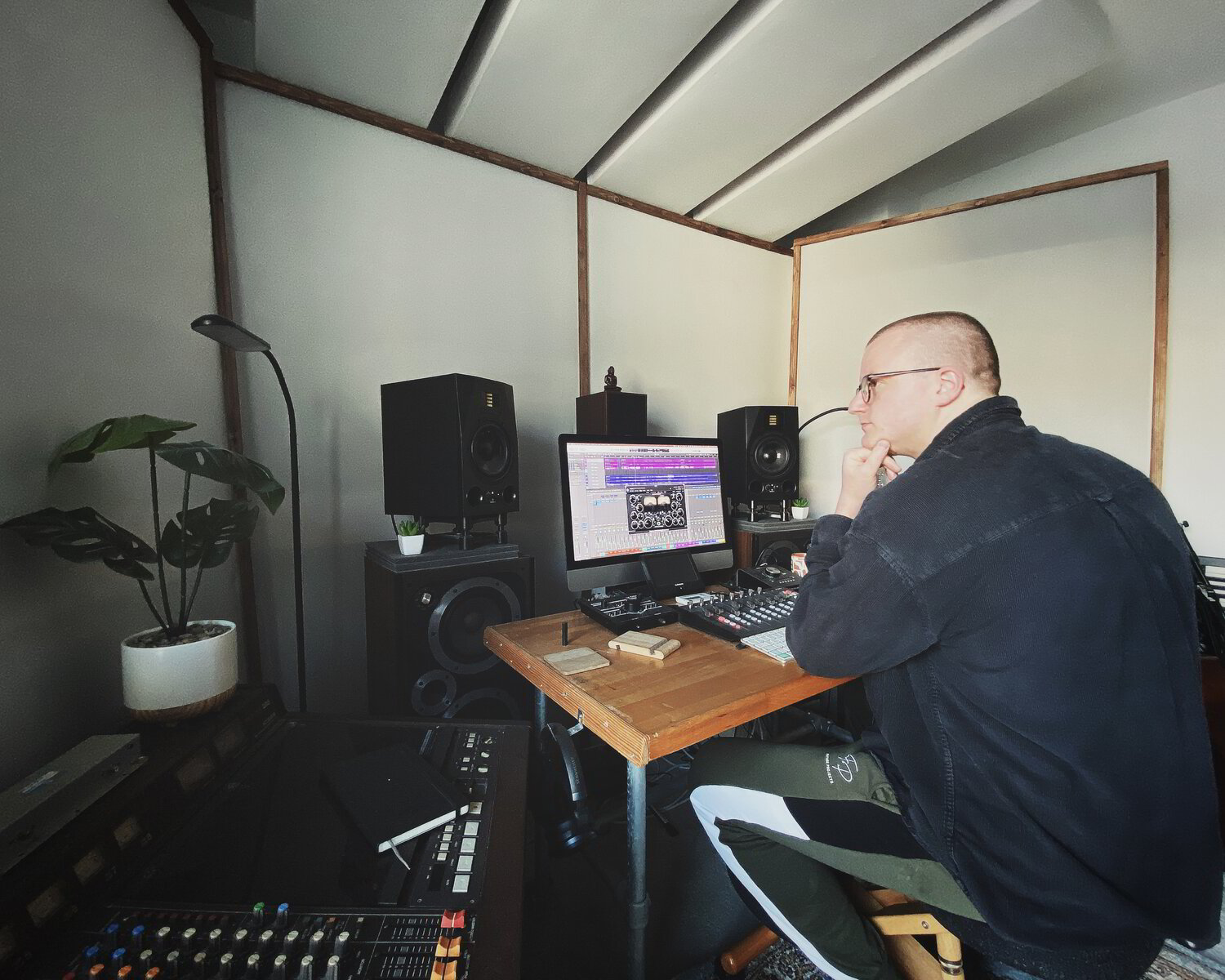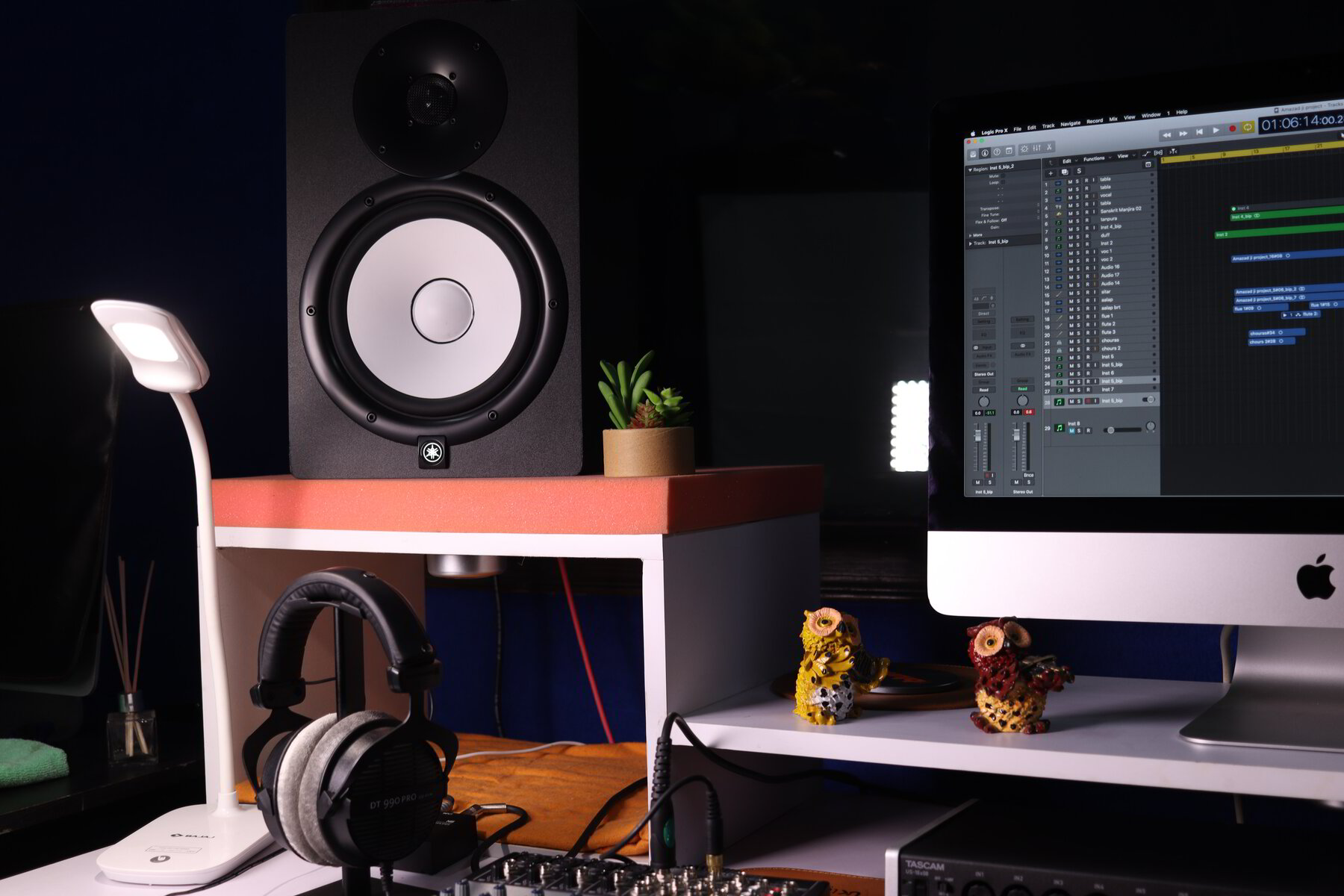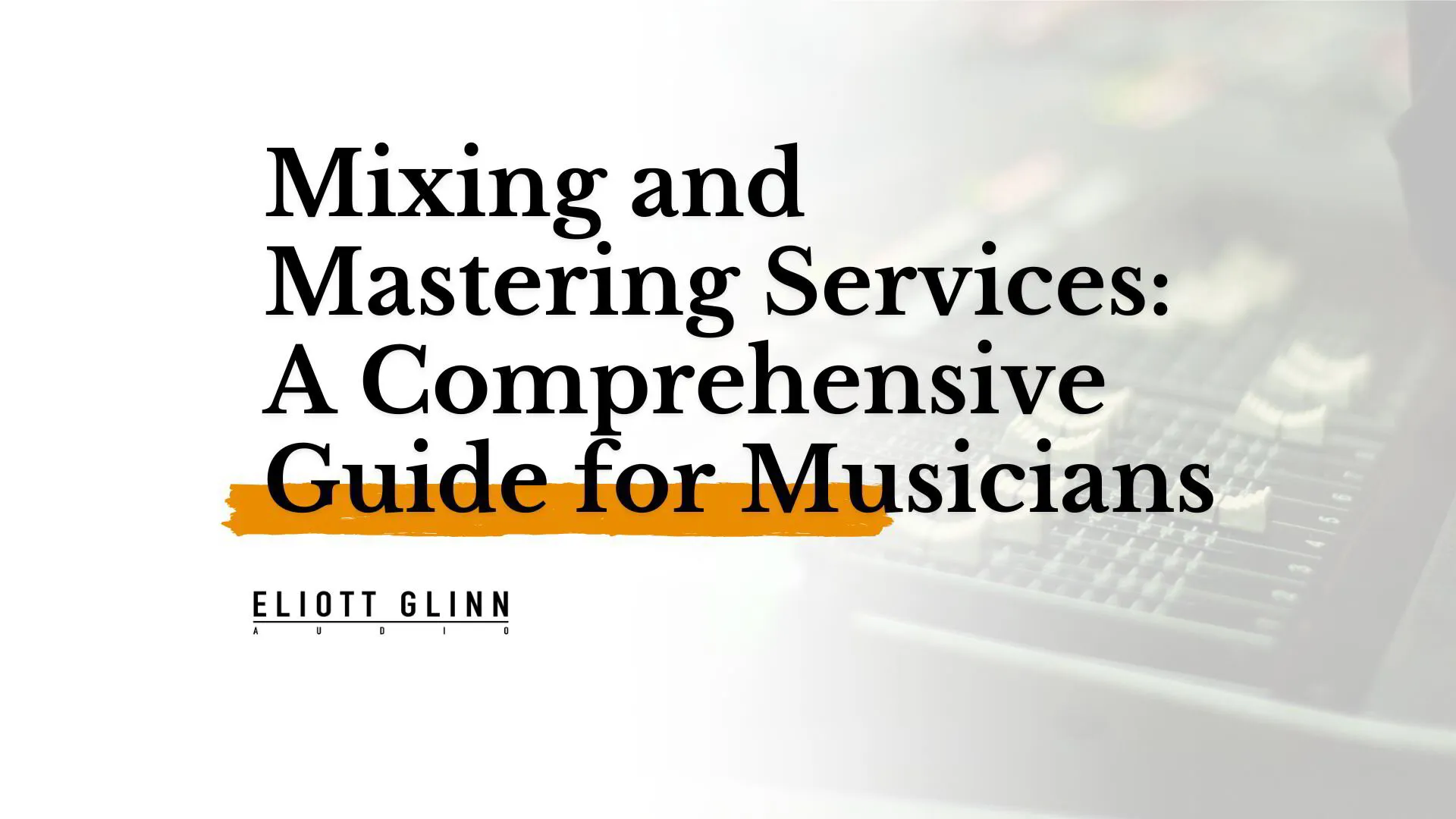As a musician, you know that your music needs to sound as professional as possible. But if you’re not a sound engineer, the technical aspects of mixing and mastering can seem daunting. That’s where mixing and mastering services come in.
In this article, we’ll explore what mixing and mastering services are, why you need them, and how to find the right service for you.
Table of Contents
1. What are Mixing and Mastering Services?
2. Why is Mixing and Mastering Important?
3. The Difference Between Mixing and Mastering
4. The Mixing Process
5. The Mastering Process
6. How to Choose a Mixing and Mastering Service
7. What to Expect From a Mixing and Mastering Service
8. The Benefits of Using a Professional Mixing and Mastering Engineer
9. The Cost of Mixing and Mastering Services
10. DIY vs Professional Mixing and Mastering
11. Conclusion
12. Frequently Asked Questions

What are Mixing and Mastering Services?
Mixing and mastering services are professional services that help musicians and artists produce high-quality, polished recordings. These services are typically offered by sound engineers who specialise in mixing and mastering.
Why is Mixing and Mastering Important?
Mixing and mastering are essential to producing high-quality recordings. Mixing is the process of combining different audio tracks into a cohesive whole, while mastering is the final step in the production process, where the tracks are optimised for playback on various devices and sound systems. Proper mixing and mastering can enhance the sound of your music, making it more dynamic and impactful.
The Difference Between Mixing and Mastering
Mixing and mastering are two distinct processes that serve different purposes. Mixing involves combining multiple audio tracks into a single stereo track. During the mixing process, sound engineers adjust levels, panning, and EQ to create a balanced and cohesive sound.
Mastering, on the other hand, is the final step in the production process, where the tracks are optimized for playback on various devices and sound systems. During mastering, sound engineers adjust levels, EQ, and compression to ensure that the final product sounds as good as possible.
The Mixing Process
The mixing process is where the individual tracks of your recording are combined into a single stereo track. This is done using a mixing console, which allows the sound engineer to adjust levels, EQ, panning, and other parameters to create a balanced and cohesive sound. The mixing process can take anywhere from a few hours to several days, depending on the complexity of the recording.
The Mastering Process
The mastering process is the final step in the production process, where the tracks are optimised for playback on various devices and sound systems. During mastering, the sound engineer will adjust levels, EQ, compression, and other parameters to ensure that the final product sounds as good as possible. This process is crucial for ensuring that your music sounds great on all playback devices, from high-end stereo systems to smartphones.
How to Choose a Mixing and Mastering Service
When choosing a mixing and mastering service, it’s essential to consider factors such as experience, equipment, and pricing. Look for a service with experienced sound engineers who have worked on projects similar to yours. Make sure the service has high-quality equipment and software to ensure that your music is mixed and mastered to professional standards.
It’s also important to consider the pricing and turnaround time of the service. While you don’t want to compromise on quality, you also don’t want to overspend on mixing and mastering services. Look for a service that offers reasonable prices and turnaround times that fit your schedule.
What to Expect From a Mixing and Mastering Service
When you hire a mixing and mastering service, you can expect professional-grade sound quality for your recordings. The sound engineer will work with you to understand your creative vision and make sure that your music is mixed and mastered to your specifications. You can expect a high level of attention to detail, with the sound engineer making sure that every element of your recording is balanced and polished.
The Benefits of Using a Professional Mixing and Mastering engineer
Using a professional mixing and mastering engineer can provide numerous benefits for musicians and artists. They can help you achieve a polished, professional sound that can help attract more listeners and increase your fan base. They can also save you time and effort, allowing you to focus on your creative work while the sound engineer handles the technical aspects of music production.
The Cost of Mixing and Mastering Service
The cost of mixing and mastering services can vary depending on the service provider, the complexity of the project, and the turnaround time. Some engineers charge a flat fee per song, while others charge by the hour. On average, you can expect to pay anywhere from $100 to $1000 per song for mixing and mastering services.

DIY vs Professional Mixing and Mastering
While some musicians choose to mix and master their recordings themselves, there are significant benefits to using a professional mixing and mastering service. Professional services offer a level of expertise and experience that most musicians simply don’t have. They also have access to high-quality equipment and software, which can make a significant difference in the final sound quality of your recording.
Conclusion
Mixing and mastering services are a crucial part of the music production process. These services can help you achieve a polished, professional sound that can attract more listeners and increase your fan base. When choosing a mixing and mastering service, consider factors such as experience, equipment, pricing, and turnaround time. By using a professional service, you can ensure that your music sounds the best it possibly can.
FAQs
What’s the difference between mixing and mastering?
Mixing is the process of combining multiple audio tracks into a single stereo track, while mastering is the final step in the production process where the tracks are optimized for playback on various devices and sound systems. Mixing involves adjusting levels, panning, and EQ to create a balanced and cohesive sound, while mastering involves adjusting levels, EQ, compression, and other parameters to ensure that the final product sounds as good as possible.
How much does it cost to mix and master a song?
The cost of mixing and mastering a song can vary depending on the service provider, the complexity of the project, and the turnaround time. Some services charge a flat fee per song, while others charge by the hour. On average, you can expect to pay anywhere from $50 to $500 per song for mixing and mastering services.
Can I mix and master my own recordings?
Yes, it’s possible to mix and master your own recordings. However, this requires a level of expertise and experience that most musicians don’t have. It’s also important to have high-quality equipment and software to ensure that your recordings sound as good as possible. If you don’t have the necessary expertise or equipment, it’s usually better to hire a professional mixing and mastering service.
How long does the mixing and mastering process take?
The length of the mixing and mastering process can vary depending on the complexity of the project and the turnaround time of the service provider. Some projects may only take a few hours to complete, while others may take several days or even weeks. It’s important to discuss the timeline with your service provider to ensure that your project is completed on time.
How can I find a reputable mixing and mastering service?
To find a reputable mixing and mastering service, you can start by asking for recommendations from other musicians or industry professionals. You can also search online for reviews and ratings of different services. When choosing a service, consider factors such as experience, equipment, pricing, and turnaround time. Look for a service with experienced sound engineers who have worked on projects similar to yours and have high-quality equipment and software.
